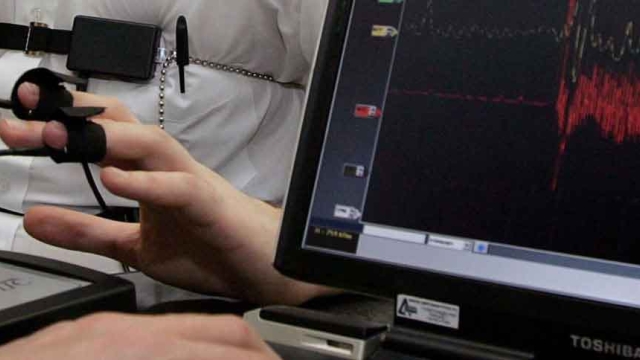
Unmasking the Truth: The Power of Lie Detector Tests

Curiosity and skepticism have long surrounded the effectiveness of lie detector tests, also known as polygraphs. These tests, often featured in crime dramas and high-stakes interrogations, hold the power to unveil the truth behind deceptive behavior. But what exactly is a lie detector test, and can it truly decipher the nuances between fact and fiction? Let’s delve into the intricate world of polygraph examinations and uncover the science behind these controversial instruments.
History of Lie Detector Tests
Lie detector test
Lie detector tests, also known as polygraphs, have a long and intriguing history. The concept of detecting deception based on physiological responses dates back to ancient times, but it wasn’t until the early 20th century that modern lie detector tests started to take shape.
The first significant developments in lie detection came in the 1920s, with the work of American psychologist William Moulton Marston. Marston’s research laid the groundwork for what would later become the modern polygraph test, focusing on changes in blood pressure, heart rate, and respiration as indicators of deception.
In 1921, John Larson, a student of Marston, invented the polygraph machine, which measured these physiological responses. This invention revolutionized the field of lie detection and paved the way for the widespread use of polygraph tests in various fields, including law enforcement, government agencies, and private investigations.
Accuracy and Controversies
Lie detector tests are often touted as highly accurate tools for detecting deception. Proponents argue that the physiological responses measured during such tests, including changes in heart rate, blood pressure, and perspiration levels, provide valuable insights into whether a person is telling the truth or not.
Despite their widespread use in various sectors, lie detector tests continue to face skepticism and controversy. Critics point out that factors such as anxiety, stress, and even individual differences in physiology can potentially influence the results of these tests, leading to false positives or false negatives.
One of the main controversies surrounding lie detector tests is their admissibility in legal proceedings. While some jurisdictions allow the results of such tests to be used as evidence, many legal experts question their reliability and argue that they should not be the sole basis for determining guilt or innocence in a court of law.
Ethical Considerations
When it comes to lie detector tests, ethical considerations play a crucial role in their implementation. It is important to consider the potential impact of these tests on an individual’s rights and privacy. Proper consent and transparency are essential to ensure that the person undergoing the test fully understands the process and its implications.
Another key ethical consideration is the accuracy and reliability of lie detector tests. It is imperative that these tests are conducted using scientifically validated methods and with trained professionals to minimize the risk of false results. Additionally, the use of these tests should be approached with caution, as relying solely on their outcomes can lead to unjust outcomes or harm to an individual’s reputation.
Furthermore, ethical guidelines dictate that the results of lie detector tests should be handled with discretion and confidentiality. It is essential to protect the privacy of individuals who have undergone these tests and to ensure that the information is not misused or misinterpreted. Upholding ethical standards in the administration and interpretation of lie detector tests is critical to maintaining trust and integrity in the process.



